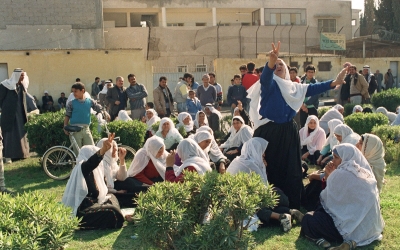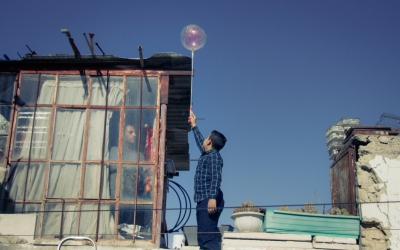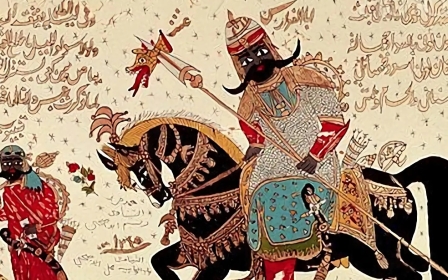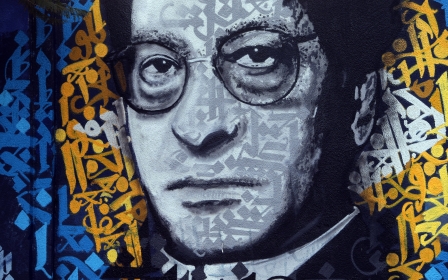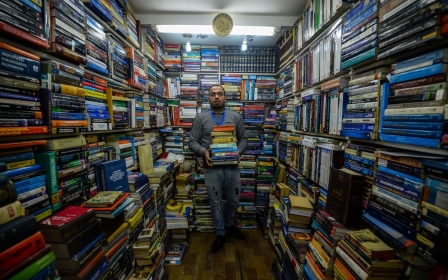Namesake: Reflections on Nusaiba, a warrior woman of early Islam
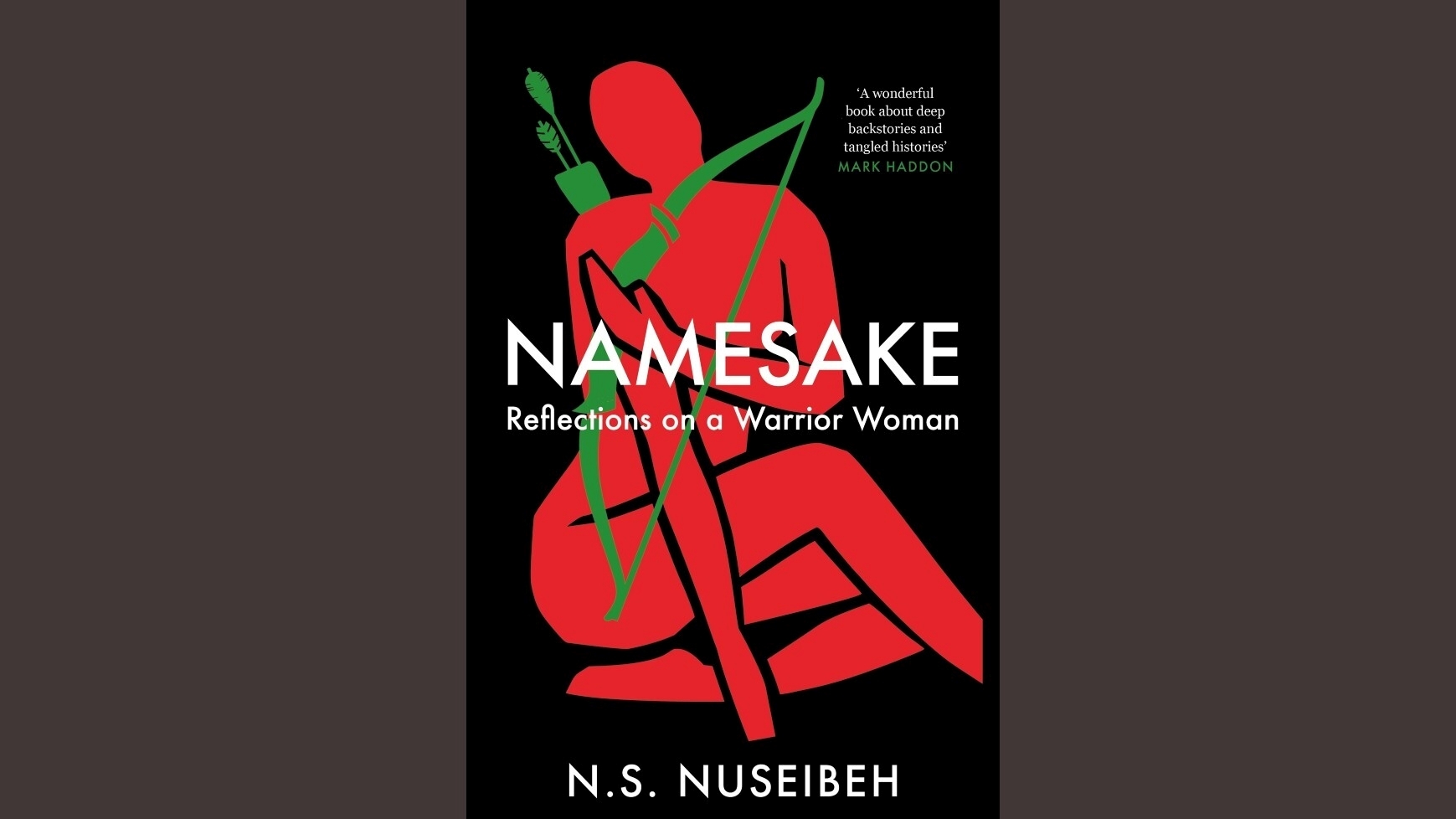
Prompted by the closeness of their names, Palestinian British author NS Nuseibeh often thinks about Nusayba bint Ka'ab al Khazrajia (or Umm Umara), one of the earliest women to convert to Islam.
The author explores this connection and the wider resonance of Nusayba’s legacy in Namesake, her first book of essays.
Namesake engages with the complexities of Palestinian, Arab, and Muslim identities in a series of intertwined chapters.
Together, they contextualise a longing for reimagined mythologies and elevated ancestry.
Nuseibeh’s essays touch upon "what it is to be a warrior, to be religious, to be a Muslim woman, an Arab feminist", adopting a secular approach to engaging with Nusayba’s life, which we rediscover via a blend of tradition and literary reinterpretation.
New MEE newsletter: Jerusalem Dispatch
Sign up to get the latest insights and analysis on Israel-Palestine, alongside Turkey Unpacked and other MEE newsletters
Nusayba represents an idealised ancestor and the embodiment of “an important proto-feminist figure”. Not only a companion of the Prophet, Nusayba also stood out on the battlefield on several occasions.
Living in Yathrib (Medina), she pledged her allegiance directly to the Prophet and fought alongside him and her own sons, for example in the battle of Uhud (625 CE), which pitted early Muslims against Meccan armies led by Abu Sufyan from the Quraish tribe.
With her sword and bow, she earned a historic reputation for bravery and military prowess sustaining injuries as she defended the Prophet, the community of believers, and Islam.
Her hand (or arm) was allegedly sliced off during the battle of Yamama (632 CE), contributing to her legend - one that elevates an unwavering courage even at a more advanced age.
Nusayba is revered as a role model and a symbol of determination amongst Muslims.
Nusayba as ‘counter-narrative’
Other stories indicate that Nusayba once asked the Prophet Muhammad why God’s messages contained no mention of women to that point. Moments later, the Prophet received a revelation on the place of women in Islam, with Nusayba next to him.
Essays in Namesake connect past and present through culture, including language, religion, and community in a diverse but cohesive manner. In keeping with Nawal El Saadawi and Leila Ahmed, Nuseibeh considers emancipation and feminism as alternatives to a patriarchal order that, she recalls, did not originate with Islam.
She not only offers a counter-narrative to the Western discourse on women in Islam, but a way of winding back to something more authentic, something untinted by Orientalist lenses.
Despite her being more myth than woman, Nusayba is powerful as a symbol of our yearning for an organic, unencumbered Muslim and Arab feminism.
Nuseibeh seeks to “dis-Orientalise” the prejudiced view of the West against Arab or Muslim women, which largely considers them victims of a backward religion deemed misogynistic in its essence.
Of course, this is inaccurate, as Nusayba – a multidimensional, empowered, and recognised woman – shows, as well as countless others.
In this "rediscovery", Nuseibeh questions violence in old and new scores. The racism and bigotry that strip Muslim women of their agency isn’t unlike the same attitudes that deprive Palestinians of their self-determination.
There’s also a deeply personal element.
Nusayba’s warriorship offers an antidote to Nuseibeh’s anxious nature. But worry isn’t consigned to that individual trait of the author.
Rather, it’s a condition that reflects the larger experience of Palestinians, which she coined as "collective powerlessness". Worry is a function of trauma and dispossession and it cannot be understood if diverted from this lens.
Finding ‘wonder woman’
In other times, Nuseibeh interrogates the diglossic nature of Arabic, articulated between its classical form derived from the Quranic revelation and its everyday dialects.
This serves to discuss how the secular relates to the sacred, and the multiple ways that loan-words migrate, like people, like herself.
She later suggests through Nusayba a different kind of Wonder Woman can exist, one not linked with the American military-industrial complex and the glorification of white-inflicted violence, like the Marvel character, but rather one that belongs to a different universe.
By way of mainstream superheroes, she points out "the privilege of violence" reserved to these powerful protagonists yet denied to brown or Muslim characters who are exclusively reduced to elements related to their race or religion.
Nuseibeh’s considerations always lead her to her native Jerusalem, to her grandmother’s house and the inescapability to think "outside" Palestine.
She centres what many refuse to acknowledge: an unobstructed right to exist and narrate.
And here, this right is exercised with the urgency of a necessity. As an archetype of female strength, Nusayba is a force, a possibility that one may eventually overcome the trauma of ongoing forced displacement and countless atrocities.
Resurfacing in each essay is Nuseibeh’s desire to live free from Islamophobia, anti-Arab sentiments, and shame.
She wonders if her research for the book and her interest in identity and belonging might tag her for Prevent, the British government’s programme to monitor and counter what it deems to be "extremist" ideas . (And suddenly I wonder if my own late-night online research might tag me as a person of concern. I haven’t been able to shake off that thought.)
A time of anger and despair
One of the most touching essays recalls the time Nuseibeh’s Jewish friend invites her to a virtual family Passover seder during the pandemic.
Nuseibeh immediately finds togetherness and family intimacy that evoke her own family memories, such as during Ramadan waiting for the cannon to sound at the end of the fasting day.
She thinks about Nusayba, who may have known about these ceremonies in Yathrib, and the kinship between Islam and Judaism.
But as the ritual feast unfolds, and as guests take turn eating or drinking while reading excerpts from the Haggadah, the text that retells the exodus from Egypt, an invisible fracture occurs.
The participants commemorate their ancestors and the promise of Jerusalem. When words are read ("Have mercy, Lord our God, upon Israel Your people, upon Jerusalem Your city") Nuseibeh’s stateless condition comes crashing in.
Narratives intertwine, superimpose. Their Jerusalem and the vivid memories of her Jerusalem. Will they acknowledge her Palestinianness, she wonders.
Suddenly, it feels as if Nuseibeh is stepping into an abyss, witnessing the historical Nakba herself and being crushed by its weight. These pages of heightened tension encapsulate much unreconciled pain.
Identity means delving into the past and its entanglements. For Nuseibeh, it helps to illuminate a space to exist in today's world, which is largely hostile to Arabs, especially a young Arab woman.
The author’s ruminations take us to seventh-century Arabia and 21st-century Britain by way of 20th-century Palestine.
The book interrogates the extent to which ghosts interact with the possibility of being and existing, referring to Derrida’s concept of "hauntology" which affirms that dead futures haunt our present. Can we ever tame these voices? When do they begin to feel less threatening, less daunting?
“The epistemological capacity to apprehend a life is partially dependent on that life being produced according to norms that qualify it as a life or, indeed, as part of life,” wrote Judith Butler in Frames of War: When is a Life Grievable (2009).
Nuseibeh mixes the personal and historical to depict a struggle for existence and dignity
In other words, how do you live as a Palestinian, as a Muslim, as an Arab woman, when dominant ideologies suggest that these are not equal lives to begin with?
Straddling the Nakba from both Palestinian and British stances, Nuseibeh carries the legacies of intergenerational survival and the malaise of living in a society that barely accepts its role in the undoing of Palestine since 1917.
It was after all, the British Balfour Declaration that vowed to establish "a national home for the Jewish people" in then Mandatory Palestine.
Nuseibeh mixes the personal and historical to depict a struggle for existence and dignity. She wasn’t in the din of Oslo negotiations (nor the many negotiations rounds before and after), yet Nuseibeh feels this history in her flesh - and the failure of it.
It equally doesn’t matter that she studied the Quran academically in Oxford instead of on wooden tablets in traditional madrassas. Nuseibeh accepts and rehabilitates the idea of a collective history that survives the present.
Nuseibeh confronts her reflections in a shattered mirror while upholding an important notion: we rarely exist without others and we need myths to propel us forward and higher.
Nusayba was first a daughter before being a woman and a mother. Remembering is how we transmit stories and tales and fight erasure. "Arabs are a people of lineages," she notes.
“Look at me, I write in these essays, I’m not so different from you. And wouldn’t you want freedom?” she asks in the book’s preface, clarifying that the book was written before 7 October 2023 and following horrors.
Unlike writers of colour who are often made to write for a white audience to audition for their humanity, Nuseibeh writes for herself and those like her. She unapologetically considers her own life’s struggle as enmeshed in structural violence, rightly placing the individual within a political context.
She wants to make sense of what keeps her awake and it’s a refreshing, timely read at a time dominated by anger and despair.
Namesake: Reflections on a Warrior Woman is published by Canongate Books
Middle East Eye delivers independent and unrivalled coverage and analysis of the Middle East, North Africa and beyond. To learn more about republishing this content and the associated fees, please fill out this form. More about MEE can be found here.


